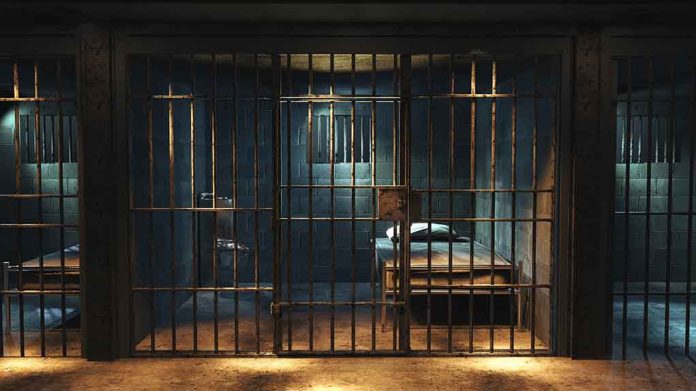
R. Kelly’s attorneys claim prison officials deliberately overdosed the disgraced singer with medication while in solitary confinement, leading to hospitalization and fears of an assassination plot orchestrated from within the federal prison system.
Key Takeaways
- R. Kelly was hospitalized for two days after allegedly overdosing on anxiety and sleep medications administered by prison staff
- His attorneys have filed an emergency motion claiming a murder plot orchestrated by federal prison officials
- Kelly’s legal team alleges he’s being held in inhumane conditions with spiders, no family contact, and no access to his commissary food as retaliation for seeking protection
- Federal prosecutors have dismissed these claims as “fanciful conspiracy” while Kelly’s attorneys are requesting temporary home detention
- Kelly is currently serving a 30-year sentence in North Carolina for racketeering and sex trafficking convictions
Alleged Assassination Attempt Through Medication Overdose
R. Kelly, the disgraced R&B singer currently serving a 30-year prison sentence for racketeering and sex trafficking, was rushed to Duke University Hospital after allegedly overdosing on medication administered by prison officials. According to court documents filed by his legal team, Kelly was hospitalized for two days before being returned to prison against medical advice. His attorneys claim this incident was not accidental but part of what they describe as an ongoing plot by federal prison officials to have the singer killed while in custody.
“Mr. Kelly’s life is in danger, and that danger is coming from Bureau of Prisons officials and their actions. Mr. Kelly needs this Court’s intervention. His life actually depends on it,” states a court filing from Kelly’s defense team. The legal motion further notes that Kelly was scheduled for surgery to address blood clots in his lungs, which his attorneys describe as critical for his survival.
Solitary Confinement Conditions Described as Retaliatory
Kelly’s attorneys claim that following their emergency safety motion, prison authorities responded by placing him in solitary confinement under harsh conditions as punishment rather than providing requested protection. The legal team describes these conditions as deliberately degrading and potentially life-threatening, with Kelly allegedly being forced to sleep in the dark surrounded by spiders and denied access to food he purchased from the commissary, leading to a two-day hunger strike out of fear his food might be poisoned.
“Mr. Kelly is now living in solitary confinement. He cannot call his family. He cannot eat his own food from his locker, which he purchased from the commissary. The prison officials refuse to give it to him,” said Brindley.
The motion portrays Kelly not as a troublemaker being disciplined for violent behavior but as a victim seeking legal protection who is now facing retaliation from the very system that should be ensuring his safety while serving his sentence. His attorneys argue these actions violate his constitutional rights and demonstrate a pattern of institutional misconduct.
Claims of a Broader Conspiracy
Kelly’s defense team has taken their allegations further by suggesting the involvement of another inmate, Mikeal Glenn Stine, who allegedly informed Kelly about the threat to his life. While federal prosecutors have dismissed these claims as a “fanciful conspiracy,” Kelly’s attorneys insist the recent hospitalization provides compelling evidence supporting their concerns. The Bureau of Prisons has declined to comment on the allegations, citing pending litigation.
“What is happening right now with him is insane. I hope that this really results in someone, somewhere, somehow getting ahold of him today and getting him back in the hospital,” said Nicole Blank Becker.
In a surprising political angle to the case, Kelly’s attorney Beau Brindley has invoked President Trump in their fight, stating: “President Trump has been fighting against this kind of criminal weaponization of the DOJ against public figures since he took office. And we will ask him to now stand up with us as we advance his fight and as our client fears that he might be killed to cover up the corruption that we seek to expose.”
Legal Battle for Home Detention
Kelly’s legal team has requested temporary home detention for the singer, arguing that his current incarceration conditions pose an imminent threat to both his physical and mental health. The motion warns that without court intervention, Kelly could suffer irreversible harm. With his alleged medical needs including surgery for blood clots and recovery from the reported overdose, his attorneys argue that prison officials have demonstrated they cannot or will not provide appropriate care and protection.
The court has not yet ruled on the emergency motion, and Kelly remains incarcerated under federal conviction. The case highlights broader concerns about inmate treatment, especially for high-profile prisoners, and raises questions about accountability within the federal prison system when allegations of misconduct arise. Whether Kelly’s claims will be thoroughly investigated or dismissed remains to be seen as this latest chapter in his legal saga unfolds.







